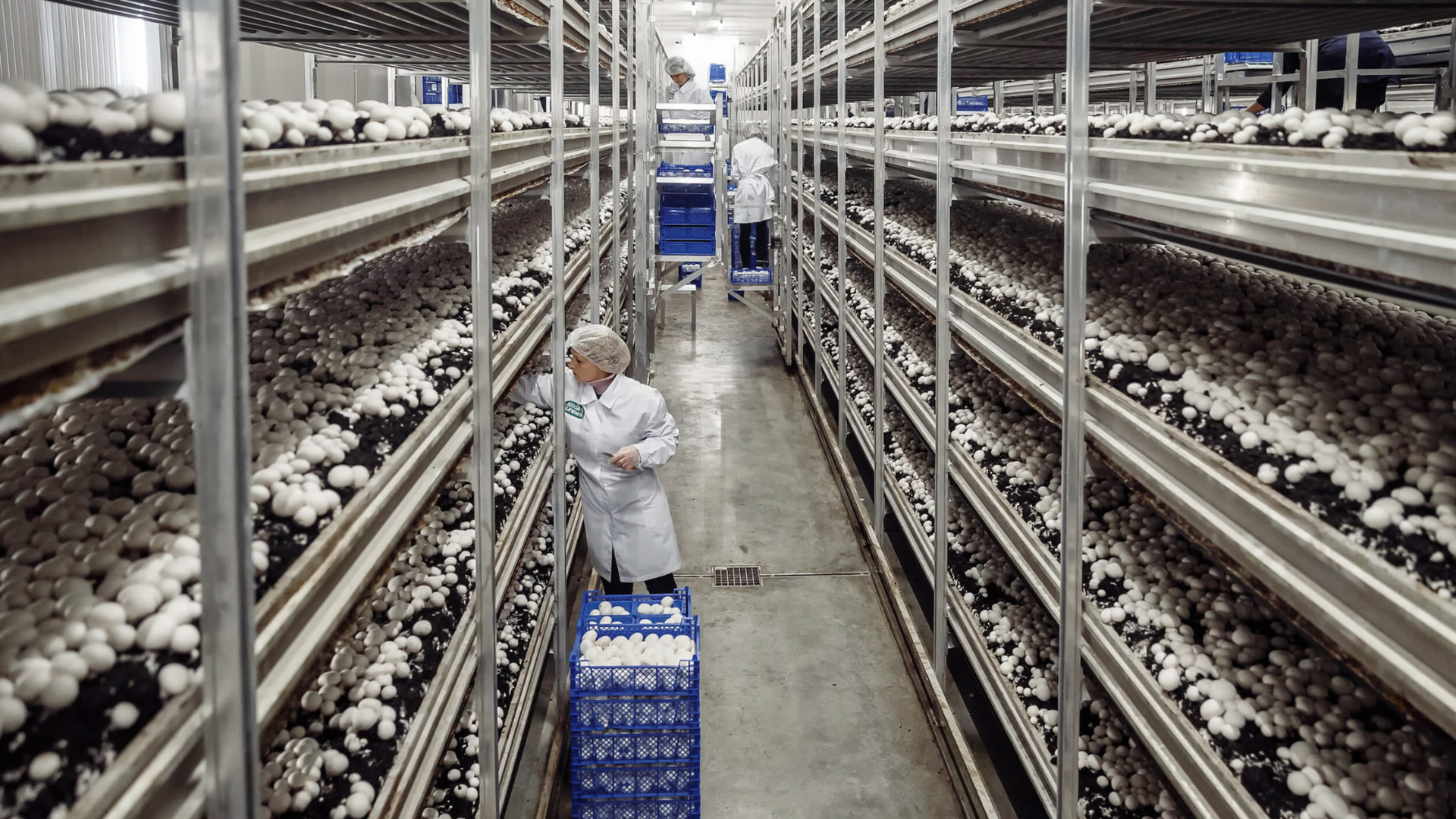
Regular media coverage and labor disputes at Instar-owned farm cause risks for investors
March 27, 2024
For over a year, Instar-owned Windmill Farms has made headlines over troubling accusations of labor rights violations at the Washington-based mushroom farm. While management has stated that workers do not need a union, investors should be concerned about the continued legal disputes, headline risk, and other financial risks posed by this investment.
In August 2022, before Instar acquired the farm, The Seattle Times reported that “Ostrom Mushroom Farms, a major producer in the Pacific Northwest, systematically fired about 80% of its employees at its Sunnyside farm — the majority of whom were women — and replaced them with foreign workers, who were mostly men, under a visa that provides fewer labor rights, according to a lawsuit filed Wednesday by the state attorney general.”
“[The Washington Attorney General] said . . . that Ostrom fired more than 140 U.S.–based pickers, mostly women, who had years of experience with the company. Ostrom then hired 65 seasonal workers who were all men except for two, under the H-2A visa program,” after making a job posting that explicitly sought “only males.”
In November 2022, The Seattle Times reported on additional public actions workers were taking to remedy unfair working conditions, as well as citing an additional fine by the WA state Department of Labor, “after an inspection found the company’s working conditions left employees susceptible to injuries that could hospitalize them or cause partial disabilities.”
In February 2023, Instar acquired Ostrom Mushroom Farm through one of its portfolio companies and is operating it under the name Windmill Farms.
After the Instar purchase, media coverage continued about the labor problems at the farm
In August 2023, according to the US DOL, “The U.S. Department of Labor Wage and Hour Division found Ostrom Mushroom Farms failed to pay farmworkers the required wage rate, did not provide cooking facilities or three meals per day, all violations of the H-2A temporary agricultural program.” The US DOL recovered “$59,850 in unpaid wages for 62 employees and $74,642 in civil money penalties.
In November 2023, Toronto-based Globe & Mail covered the situation at the farm in two separate articles, as did The Seattle Times and the LA Times, when “A half–dozen Washington–state agricultural workers filed a lawsuit Tuesday against their mushroom farm’s Canadian owners, saying employees attempting to organize a union there have been harassed, singled out for mistreatment and in some cases terminated.”
“The lawsuit demands a halt to the use of production quotas to discriminate against some workers, an end to workplace surveillance of certain employees and an end to separating union supporters from one another in order to stop them from discussing workplace concerns.”
“Other union supporters reported being separated into different crews, mocked by management, assigned to picking rooms with fewer mushrooms, denied time off to attend union events, reprimanded for raising workplace dangers and subjected to regular surveillance.”
“Early this September [2023], workers tried again. More than 250 signed a petition whose demands included the right to negotiate pay and production quotas – and for the current owner, Windmill, to “recognize our union and begin negotiations of a labour agreement.”
“Windmill chief executive Ed Carolan declined to comment this week on the lawsuit. … The company has said workers have no need of a union.”
Media coverage of the labor dispute continues
On March 24, farmworkers celebrated Cesar Chavez day with a rally to support a law in Washington that guarantees the right to unionize and collectively bargain, highlighting the situation at Windmill/Ostrom.
As reported by NBC local affiliate, farmworkers gathered in Sunnyside, WA, home of Instar-owned Windmill Farms, “to show farms in the area that they still want their [workplace] protections. . . . after employees from the Ostrom Farm unionized but the farm continued to ignore the farmworkers’ desire for protections, even limiting water breaks, according to some former employees.”
“It’s been three years and they’re still here and still fighting,” said UFW President Teresa Romero.
Instar has refused to meet with the workers’ union and has not responded to multiple inquiries about the situation from civic groups, including PESP. The refusal to engage with workers’ representatives and to engage with stakeholders represents unnecessary legal and headline risks. Instar and local management should meet with worker representatives in an effort to improve working conditions at the farm and avoid continued risks to investors.
